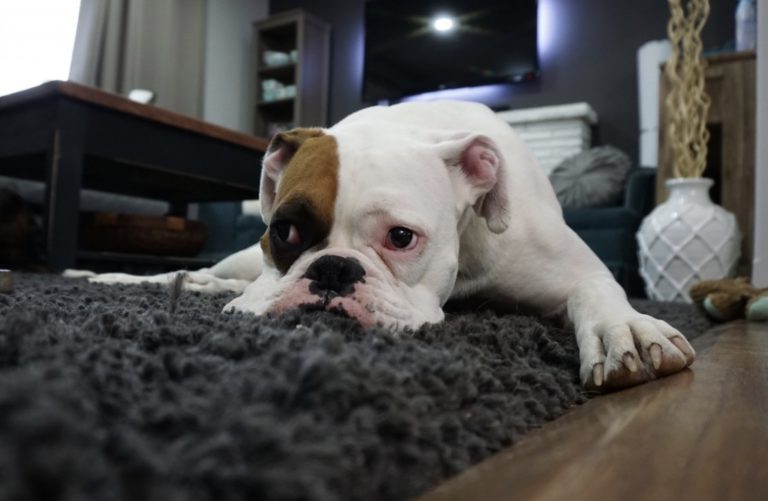Ask 10 dog owners, and probably half of them will tell you they have trouble with separation anxiety. It is one of the most common complaints of pet parents. I have written previously about one of the biggest mistakes dog owners make.
Today, I will go deeper into the topic and expand on some of the mistakes we make and we not-knowingly cause separation anxiety in our puppies.
Signs of separation anxiety
What are the common symptoms of separation anxiety? We all know them. Yet, we sometimes ignore them.
The first and most common symptom is urinating and defecating in the house. Puppies urinate or defecate when they are left alone. But if your puppy does it in your presence as well, separation anxiety is not the reason for it. It is just your dog needs to be potty trained.
Barking and howling is the next most obvious sign. A dog with separation anxiety will bark and howl when left alone or separated from his guardian. It is a persistent barking and it is triggered only by being left alone.
The most troubling problem is chewing, digging, and destruction of the home. Dogs with separation anxiety will chew on objects, door frames, and even window sills. They will destroy household objects when left alone or they are separated from their dog owner.
Some dogs even try to escape from an area of confinement. Your puppy might chew and dig through doors so that he can escape.
What will not help with separation anxiety?
Now let’s talk about the mistakes you might do that only worsen the condition. These things will not help with separation anxiety.
Punishment
Why are you punishing your dog? What has he done wrong? Your puppy doesn’t know anything better than to be right next to you. It is your job to build his confidence and improve his independence.
Punishing your dog for whining and barking when left alone will worsen the situation. Your dog might stop barking when you are right out of the door, but the moment you are in your car and away, he will start barking. You might not hear your puppy, but your neighbors will.
Getting another dog
This is one of the most common mistakes dog owners make. Yes, a companion dog sounds ideal in theory. But in reality, it doesn’t work that way.
Why it doesn’t help? Because your dog’s anxiety is the result of separating from you, not from being alone in the home. Your puppy is looking for you, not another dog.
The radio or TV noise trick
Raise your hand if you have read somewhere that leaving the radio or TV noise while leaving the home might help. I don’t want to be the one delivering bad news, but it doesn’t help. Yes, it might work as a cue for something, but not as a solution for your dog’s separation anxiety.
I have to repeat again and again, noises and silence are not the problem. Your dog misses you, not some noises in the home.
Obedience training
It might sound stupid to call obedience training a mistake for treating separation anxiety. But that is the reality. Separation anxiety in dogs is not the result of disobedience or lack of obedience training. Yes, formal training can be a tool to tire out your puppy before leaving the home.
Yet, obedience training doesn’t help with anxiety that much.
So, what to do?
Well, the obvious answer here is crate training. But I have to warn you. Crate training can sometimes result in even worse anxiety. This type of training works only when done right. Many people and dog owners think that crate training is as simple as getting a crate and putting your dog inside.
You have to work and make associations with the crate and make your dog feel safe inside. Once you achieve that, you can have a dog who is independent and confident enough to stay alone at home.
Why puppies might develop separation anxiety?
There is no conclusive evidence that shows exactly why puppies develop separation anxiety. Your pet might have different reasons. Usually, dogs adopted from shelters struggle with anxiety more than dogs from a breeder. But that is because of all the things happening in shelters. The problem is most dogs end up in shelters because of their owners and their mistakes.
Here are a couple of reasons why dogs develop separation anxiety:
- Change of guardian or family (being adopted, surrendered to a shelter, or given to a new guardian)
- Change in the schedule (dogs love their routine, and any change might scare them)
- Change in residence
- Change in household membership, like the sudden absence of a resident family due to death or moving away






